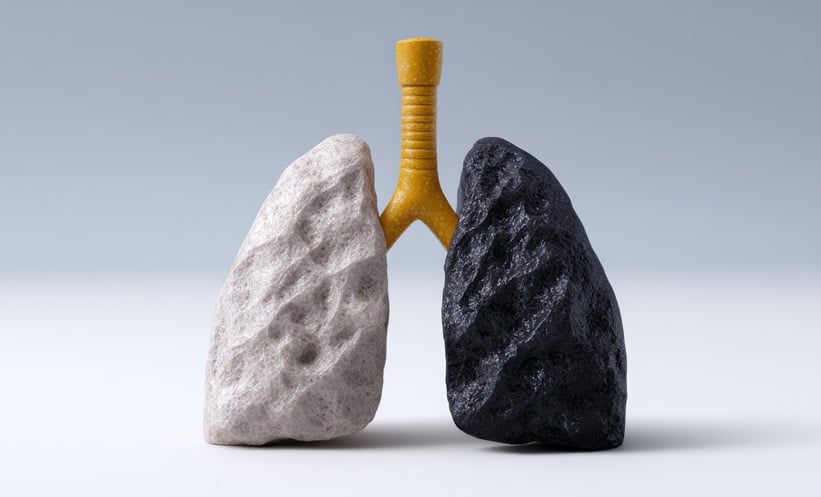CARBON accumulation in alveolar macrophages is significantly elevated in patients with chronic obstructive pulmonary disease (COPD) compared to smokers and is closely associated with reduced lung function, according to recent research.
COPD is primarily caused by inhalation of noxious airborne particles, with carbon particles representing a major component of this burden. In this study, researchers analysed lung tissue samples from 28 individuals with COPD and 15 smokers without COPD, quantifying carbon deposits in alveolar macrophages using histological staining. They also evaluated macrophage size and phenotype changes, and in a complementary in vitro arm, monocyte-derived macrophages (MDM) from healthy donors were exposed to carbon to assess changes in cell morphology, marker expression via RT-PCR, and pro-inflammatory cytokine production by ELISA.
The results revealed significantly higher carbon accumulation in macrophages from COPD patients, with mean carbon area at 5.0 µM² compared to 1.3 µM² in smokers (P=0.04), and carbon occupying 4.2% of the macrophage area in COPD versus 0.74% in smokers (P=0.04). Importantly, carbon load was inversely correlated with lung function as measured by FEV1% (r=–0.43, P=0.001 for carbon area; r=–0.49, P=0.004 for percentage area). Macrophages containing carbon were also significantly larger (16.1 µM) than carbon-negative cells (14.2 µM, P<0.0001). In vitro, carbon-exposed MDMs showed a 19% increase in size and significantly upregulated expression of CD206, CD80, and CD38, alongside elevated TNFα and CXCL8 release, indicating a shift to a pro-inflammatory phenotype.
These findings suggest that carbon exposure drives structural and functional reprogramming of alveolar macrophages in COPD, contributing to inflammation and disease progression. Targeting macrophage carbon burden could offer a novel therapeutic angle for improving COPD outcomes.
Reference
Baker J et al. Alveolar macrophage carbon is associated with COPD severity. ERJ Open Research. 2025; DOI: 10.1183/23120541.00933-2024.








